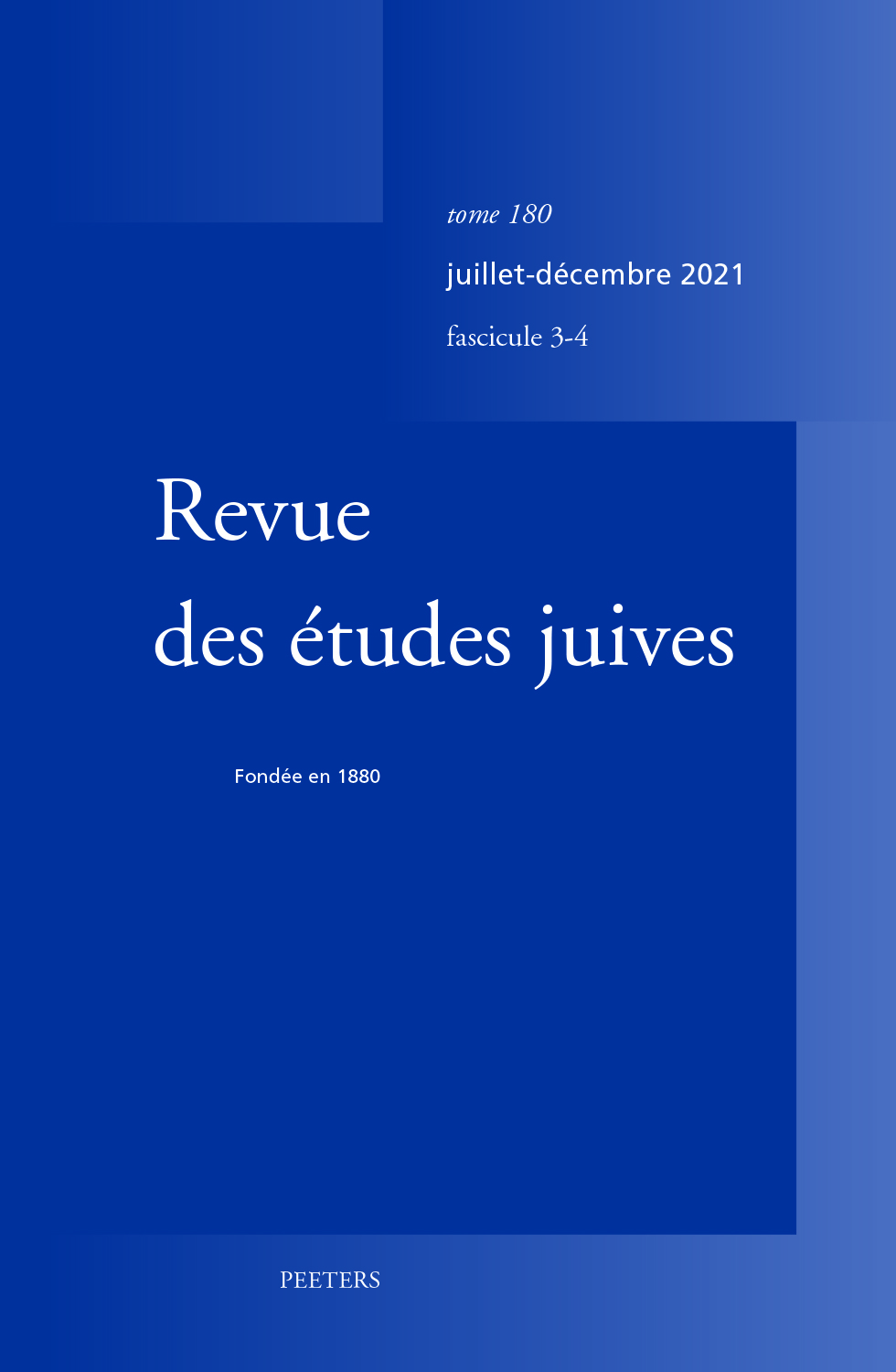 previous article in this issue previous article in this issue | next article in this issue  |

Preview first page |
Document Details : Title: Rabbi Meyuhas ben Elijah Subtitle: His Geographical Provenance, Works, and Chronology Author(s): JACOBS, Jonathan Journal: Revue des Études Juives Volume: 181 Issue: 1-2 Date: janvier-juin 2022 Pages: 111-136 DOI: 10.2143/REJ.181.1.3290625 Abstract : This article offers a reevaluation of the geography, works, and biographical chronology of Rabbi Meyuhas ben Elijah, a biblical exegete hailing from the Byzantine Empire. The discussion is based both on a reconsideration of previously discussed facts and on a review of new information. In terms of his geographical provenance, scholars agree that Rabbi Meyuhas hailed from a Greek-speaking country. However, based on new information, it appears that he grew up or at least lived for a number of years in an Arabic-speaking country. When it comes to determining the era in which he lived, scholars are divided: ranging from those who place him as early as the twelfth century to those who place him as late as the fifteenth. A careful analysis of Rabbi Meyuhas’ commentary – the sources he cites and uses; his grammatical approach to Hebrew; his acknowledgment (or omission) of philosophical and kabbalistic issues in his commentaries; and his literary and exegetical styles – yields the following conclusion: Rabbi Meyuhas wrote his commentary on the Pentateuch in the second half of the thirteenth century. Cet article ouvre un nouveau débat concernant l’oeuvre, le lieu et l’époque où a vécu le commentateur byzantin de la Bible, Rabbi Meyuhas ben Élie. Pour ce faire, nous réinterpréterons des données déjà connues, tout en nous appuyant sur de récentes découvertes. En ce qui concerne sa région d’origine, les chercheurs s’accordent à dire que Rabbi Meyuhas ben Élie vient d’un pays de langue grecque. Toutefois, selon différentes sources, il aurait grandi, ou tout du moins passé plusieurs années, dans un pays arabophone. Concernant son époque, les avis des chercheurs divergent, la période envisagée la plus ancienne étant le douzième siècle, et la plus tardive, le quinzième siècle. Or, d’après ses tournures grammaticales, ses commentaires inspirés par la philosophie et la Kabbale, ainsi que son style et sa méthode d’interprétation, Rabbi Meyuhas ben Élie a manifestement rédigé son commentaire du Pentateuque durant la seconde moitié du treizième siècle. |
|


